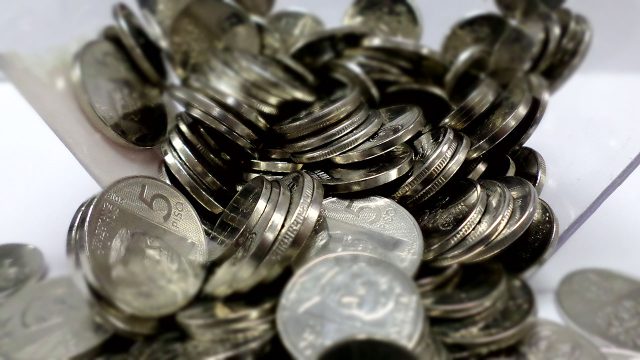
YIELDS ON the central bank’s term deposits inched higher on Wednesday due to a weaker peso and as they tracked an uptrend in global rates.
Bids for the term deposit facility (TDF) of the Bangko Sentral ng Pilipinas (BSP) amounted to P540.613 billion on Wednesday, higher than the P530-billion offer but failing to beat the P620.229 billion in tenders seen last week.
Broken down, demand for the seven-day papers stood at P160.051 billion, lower than the P170 billion on the auction block as well as the P217.425 billion in tenders logged during last week’s offering.
Accepted rates for the tenor ranged from 1.68% to 2.2%, a wider band than the 1.69% to 1.7125% recorded a week earlier. This caused the average rate of the one-week term deposits to increase by 3.25 basis points (bps) to 1.7371% from the 1.7046% quoted previously.
Meanwhile, the 14-day papers attracted tenders amounting to P380.562 billion, surpassing the P360-billion offering but falling below the P402.804 billion in demand seen last week.
Banks asked for yields ranging from 1.7095% to 1.88%, a wider margin compared with the 1.71% to 1.8% seen last week. With this, the average rate of the two-week term deposits inched up 0.04 bp to 1.7443% from 1.7439% on Sept. 22.
The BSP did not sell 28-day term deposits for the 49th straight auction to give way to its weekly offerings of bills with the same tenor.
The term deposits and the 28-day bills are used by the BSP to gather excess liquidity in the financial system and to better guide market rates.
Yields on the term deposits increased on Wednesday as they tracked global rates, ING Bank N.V. Manila Senior Economist Nicholas Antonio T. Mapa said.
“Rates inched higher for local TDF tracking the general uptrend in global yields. Inflation concerns have driven longer-end yields higher but the rise of shorter-dated yields was capped by abundant liquidity,” Mr. Mapa said in an e-mail.
Benchmark US Treasury yields continued to climb since the end of last week, Reuters reported. This was due to market reaction to signals from the US Federal Reserve that it could begin reducing its monthly bond purchases as soon as November, with rate hikes likely to follow.
Euro zone bond yields also increased on Tuesday amid hawkish tones from major central banks, including the Fed as well as the Bank of England.
TDF yields also rose due to the continued depreciation of the peso versus the dollar, Rizal Commercial Banking Corp. Chief Economist Michael L. Ricafort said.
“Weaker peso exchange rate recently could increase imports costs and lead to some uptick in inflation,” Mr. Ricafort said in a Viber message.
The peso closed at P51 per dollar for the second straight day on Tuesday, its weakest finish since it ended at P51.07 on March 26, 2020. This is down by P2.973 or 6.2% against its close of P48.023 per dollar on Dec. 29, 2020.
Meanwhile, inflation surged to 4.9% in August, the fastest since the 5.1% recorded in December 2018, as food prices spiked due to recent typhoons. This brought the eight-month average to 4.4%.
The BSP expects inflation to hit 4.4% this year, quicker than the 4.1% estimate it gave previously and above its 2-4% target. In 2022 and 2023, inflation is expected to fall within target at 3.3% and 3.2%, respectively. — Luz Wendy T. Noble with Reuters
Yields on term deposits climb on weaker peso
Source: Bantay Radio
0 Comments